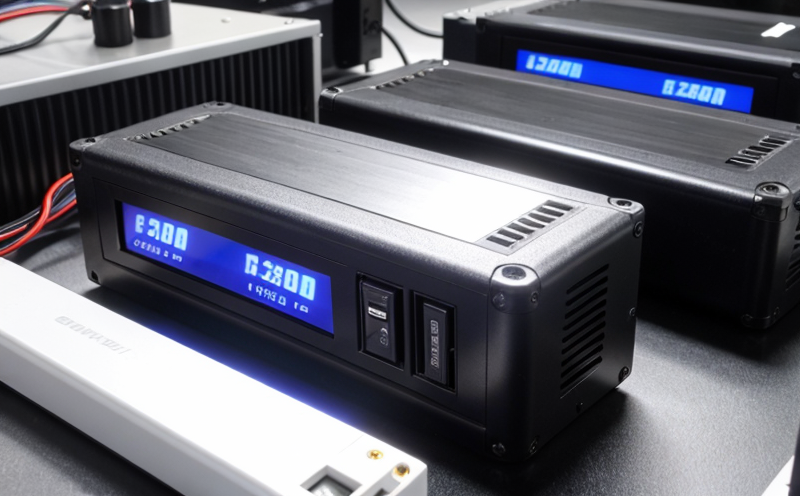ASTM D3333 Performance Testing of Alkaline Manganese Dioxide Cells
The ASTM D3333 test method is a critical standard for the performance evaluation and quality control of alkaline manganese dioxide cells. This service ensures that batteries meet strict requirements set forth by this international standard, which is widely recognized across various industries such as consumer electronics, automotive, and industrial applications.
Alkaline manganese dioxide cells are known for their high energy density and long shelf life, making them ideal for a wide range of products. However, to ensure that these batteries perform optimally under real-world conditions, they must undergo rigorous testing. ASTM D3333 provides the necessary protocols to evaluate key performance indicators including open-circuit voltage (OCV), short circuit current (SCC), and resistance. This testing also evaluates the cells' ability to maintain consistent output power over time.
The process begins with proper specimen preparation, where each cell is carefully conditioned according to ASTM D3333 specifications. This involves conditioning at room temperature for a specific duration, followed by an initial measurement of OCV and SCC. Subsequent tests are conducted after the cells have been discharged and recharged several times to simulate actual usage conditions.
During these tests, specialized equipment is used to ensure precision and accuracy. The test chamber maintains controlled environmental conditions to replicate real-world scenarios. This includes temperature regulation, humidity control, and air flow management. The testing apparatus is capable of measuring minute changes in voltage, current, and resistance, providing detailed insights into the battery's performance.
The results obtained from ASTM D3333 testing are crucial for quality assurance departments and product development teams. They help identify any issues with manufacturing processes or raw materials that could affect battery performance. This information is invaluable in optimizing production techniques and ensuring consistent product quality.
| Parameter | Description | Measurement Method |
|---|---|---|
| Open-Circuit Voltage (OCV) | The voltage of the cell when no current is drawn. | Using a precision voltmeter after conditioning. |
| Short Circuit Current (SCC) | The maximum current that can be drawn from the cell. | Measuring directly with a high-precision ammeter during short circuit conditions. |
| Resistance | Measure of how much the battery resists the flow of electric current. | Determined by measuring voltage drop across known resistance using a Wheatstone bridge. |
Scope and Methodology
- Conditioning: Specimens are conditioned at room temperature for specified durations before testing.
- Initial Measurement: OCV and SCC are measured immediately after conditioning.
- Discharge/Recharge Cycling: Cells undergo multiple discharge and recharge cycles to simulate real-world use.
- Data Collection: Voltage, current, and resistance data is collected at each step of the process.
Eurolab Advantages
At Eurolab, our expertise in ASTM D3333 testing ensures that you receive accurate, reliable results every time. Our state-of-the-art facilities and highly trained technicians guarantee adherence to international standards while delivering consistent, repeatable test outcomes.
We offer comprehensive support throughout the entire testing process, from specimen preparation to final report delivery. This includes detailed documentation of each step taken during the tests, ensuring transparency and traceability for all involved parties.
Our commitment to quality extends beyond just meeting ASTM D3333 requirements; we also stay updated on any changes or new developments within this standard to ensure our services remain cutting-edge and relevant.
Quality and Reliability Assurance
- Calibration: All instruments used in ASTM D3333 testing are regularly calibrated to industry standards.
- Data Validation: Multiple checks are performed on data collected during the tests for accuracy and consistency.
- Auditing: Our processes undergo regular audits by independent bodies ensuring compliance with international standards.





